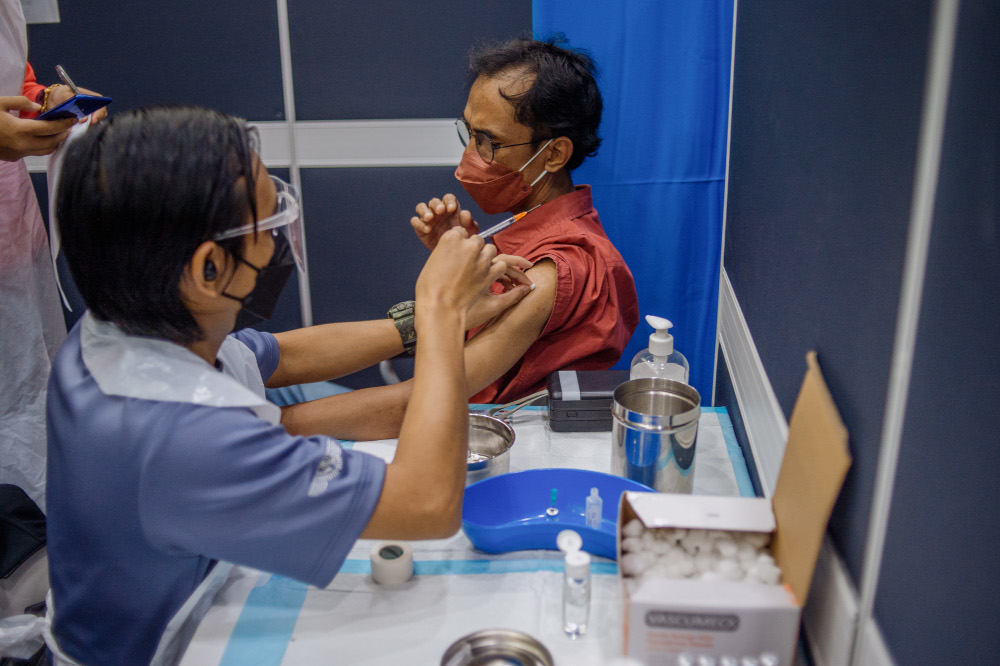A man receives the Covid-19 booster jab at the UEM Learning Centre in Petaling Jaya, November 24, 2021. — Picture by Shafwan Zaidon
KUALA LUMPUR, Dec 23 – The acceptance rate of the Covid-19 vaccine booster dose has been rated good, but the majority of recipients chose to take a booster dose of the same vaccine (homologous) with the primary dose, said Deputy Health Minister Datuk Dr Noor Azmi Ghazali.
He said based on a questionnaire entitled ‘Perceptions of Booster Dosage among the Malaysian Population (Inception – B)’ by the Clinical Research Institute on October 15-26, 76.2 per cent of respondents agreed to take a booster dose and of the total, only 39.9 per cent agreed to a different (heterologous) type of vaccine with primary dose.
“This may result in a low attendance rate for booster doses because at that time, only Pfizer-BioNTech’s Comirnaty vaccine had been approved by the Drug Control Authority (DCA) as a booster dose,” he said in a question-and-answer session at the Dewan Negara here today.
He was responding to a question from Senator Datuk Teo Eng Tee who wanted to know the main reason most people did not attend the Covid-19 booster injection and the ministry’s efforts in tackling the slow uptake.
However, Dr Noor Azmi said the Ministry of Health (MoH) expected the rate of booster dose to increase as the DCA had approved Sinovac’s CoronaVac vaccine and AstraZeneca vaccine to be used as booster doses on November 17, thus enabling homologous doses to be implemented.
Responding to the main reason why most people did not favour booster injections, he said this was because they had yet to get clear information.
According to him, the results of the questionnaire also found that only 48.8 per cent stated that they had enough information about the booster dose.
“In this regard, MoH has established a special PICK (National Covid-19 Immunisation Programme) – Booster Communication Strategy Committee has been formed to strengthen the delivery of messages related to booster doses to the public,” he said.
Replying to a supplementary question by Teo who wanted to know why Malaysia was still implementing mixed vaccines when the World Health Organisation (WHO) had warned against it, Dr Noor Azmi said studies showed that heterologous doses would result in higher immunity compared to similar vaccines.
“That is why we want to explain to the people so that they understand and will not be afraid and consider the matter with regard to the protection of all at large,” he said.
Regarding the administration of the second booster dose, he said the government was currently focusing on the administration of the existing booster dose and the next booster dose was still under the MoH’s study.
“So far (with) the available data, we have not yet reached that level, for this Covid-19 we are focusing on the booster dose and we have not yet made a decision (to give a second booster dose). The decision must be based on accurate facts for our health sake,” he said in response to a supplementary question from Senator Datuk A. Kesavadas regarding the administration of the second booster dose. – Bernama

